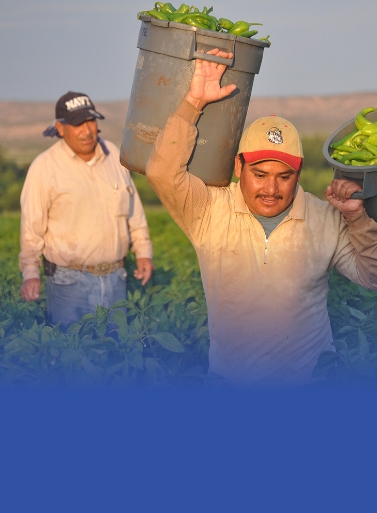Mental Health Support for Farmworkers: Learning to Thrive
Farmworkers are vital to the California economy and the entire country. California’s 77,500 farms produce more than 400 commodities representing an estimated 13% of the agriculture products consumed in the United States. Despite the essential role farmworkers play, many face significant challenges accessing the care they need to stay mentally and physically healthy. In Coachella Valley, 32% of adults reported experiencing stress, anxiety, or depression. These challenges have only been elevated during the pandemic and can include:
- Lack of Spanish speaking services,
- Being uninsured,
- A demanding work schedule,
- Extended family care responsibilities,
- Economic hardship, and/or the added stress of waiting on documentation
When a person lives in a state of prolonged stress and adversity it can deeply impact mental and physical health.
Additional Information & Downloads for Farmworkers
- Mental Health Support for Farmworkers: Learning to Thrive (PDF)
- How to Manage Stress and Anxiety (PDF)
- Ulysses Syndrome and the Farmworker Community (PDF)
- Mental Health Resources for the Coachella Valley Farmworker (PDF)
Mental Health is Just as Important as Physical Health
Mental health includes emotional, psychological, and social well-being. It affects how we think, feel, and act. We all go through differing levels of mental health throughout our lifetime, but when mental health challenges are persistent and interfere with daily life, such as work or relationships, it’s time to seek additional support.
With appropriate treatment and support, 70-90% of people report a reduction in symptoms and improved quality of life. This resource provides you with information on symptoms to look for, tips for self-care, and free resources to get help.
Symptoms of Mental Health Challenges
If you or someone you know is experiencing one or more of the symptoms below for more than two weeks, consider getting help.
It is important to note that only a medical professional can provide a concrete diagnosis.
- Social isolation or withdrawal
- Loss of interest in activities that are normally enjoyable
- Increasing inability to cope with daily problems and activities
- Dramatic changes in eating or sleeping patterns
- Denial of obvious problems
- Extreme highs or lows in mood
- Feeling disconnected from oneself or one’s surroundings
- Long-lasting sadness or irritability, excessive fear, worry, or anxiety
- Delusions, hallucinations, or confused thinking
- Many unexplained physical problems
- Abuse of drugs or alcohol
- Suicidal thoughts
If you need help, don’t wait, and seek help!
Making the decision to ask for help is not always easy. Many people hope that the problem will just go away on its own or think that they are weak in asking for help. Acknowledging a problem and seeking help is a sign of strength and courage and is the first and most important step on the road to recovery. There are tools that can help you recover, including medications, talk therapy, group support, self-assessment, wellness plans, and many other options.
Resources
Help is available! Find easy access to mental health and suicide prevention resources by using the links provided below, also available in Spanish.



